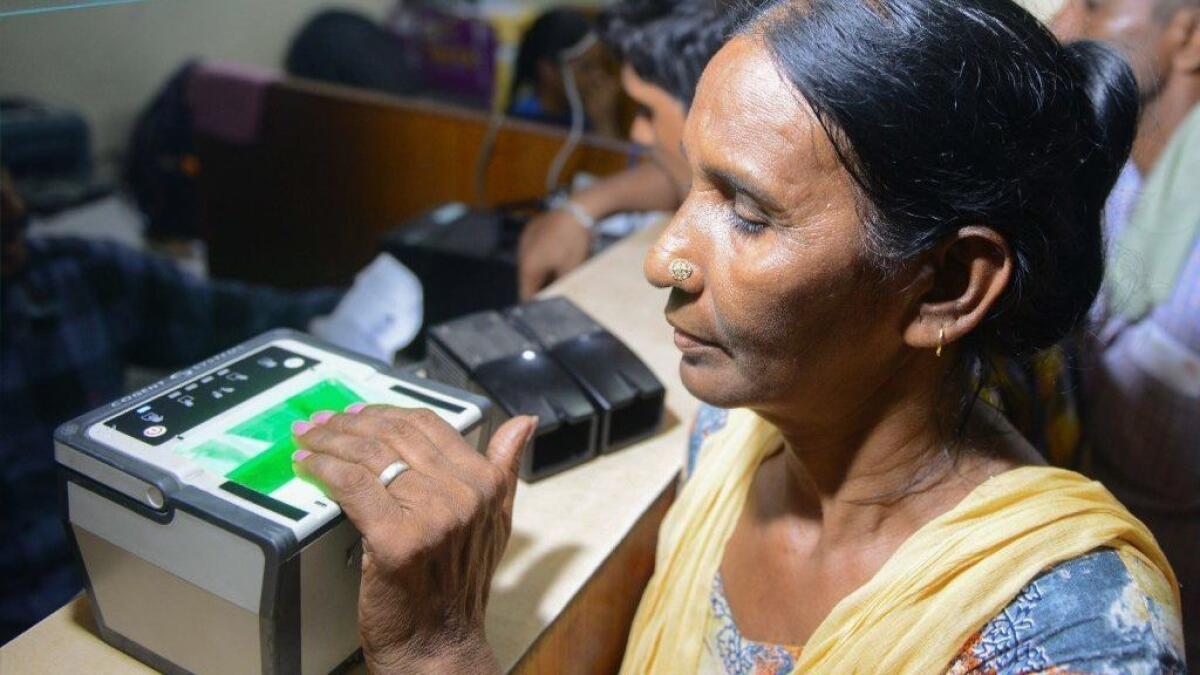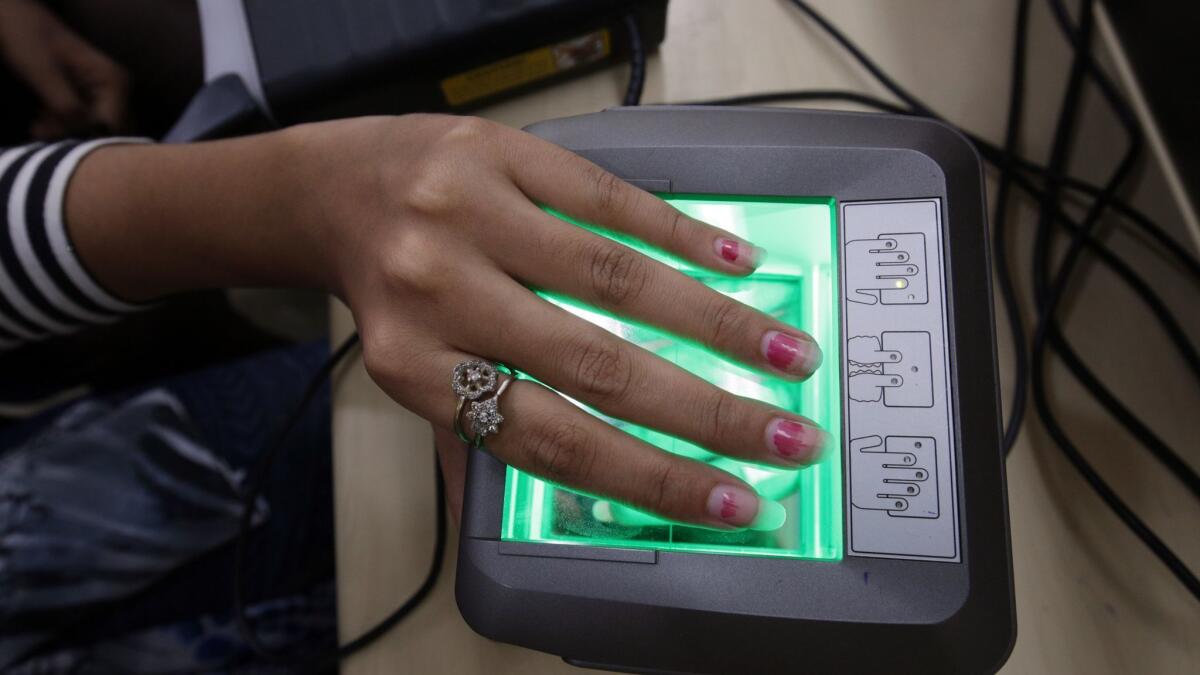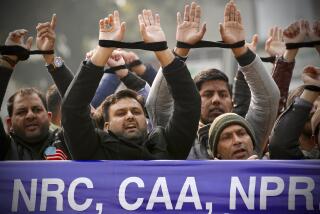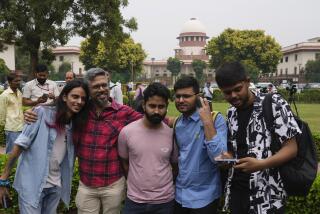India’s Supreme Court upholds legality of world’s largest biometric database, but with limits

Reporting from New Delhi — India’s Supreme Court on Wednesday upheld the constitutional validity of a controversial national identity program that has built the world’s largest biometric database, ruling that it does not violate privacy rights but curbing some of its sweeping powers.
A five-judge panel ruled that the government may continue to use the database known as Aadhaar – which means foundation – to distribute welfare benefits, including subsidized food grains and employment guarantees for the rural poor. Aadhaar will also be mandatory for filing income taxes, the court said.
But in a majority opinion, the court also ruled that government agencies and private companies could no longer require citizens to provide an Aadhaar number to open or operate bank accounts or mobile phone connections, or to enroll in school.
The ruling by the country’s highest court attempted to strike a balance between improving the efficiency of government welfare programs – the intent of the Aadhaar program when it was launched nearly a decade ago – and addressing concerns from privacy advocates that enrollment was increasingly becoming mandatory and its data could be used to snoop on citizens.
“Data obtained is very, very minimal, [while] the benefits, especially to [the] marginalized, is large,” Justice A.S. Sikri wrote in a majority opinion, arguing that while no one should be denied welfare benefits for not possessing an Aadhaar number, the program served a larger public good.
“Lot of people who will benefit due to inclusion cannot be denied due to exclusion of a few,” Sikri said. “We cannot throw the baby out with the bathwater.”
Aadhaar – a unique 12-digit number linked to a person’s biometric characteristics, like fingerprints and iris scans – was launched in 2009 as a voluntary system that could protect data and combat corruption in India’s vast welfare programs. The government budget for health, education and social protection programs this year was more than $21 billion.
But civil liberties advocates argued that as use of the database expanded, it had often become a tool of exclusion, denying poor people potentially life-saving benefits.
In several cases, activists said, poor Indians died of hunger after being denied food grains because they didn’t have an Aadhaar number or because of technical glitches.
As the database grew to include more than 1.1 billion people – and nearly 99% of Indian adults – more private companies began to use Aadhaar to speed transactions, raising concerns about data protection and privacy.
The publication of Aadhaar numbers on unsecured websites and reported hacks of the database also fueled suspicion on whether Aadhaar could be trusted.
The Unique Identification Authority of India, the government body that oversees the program, maintained that no sensitive information was disclosed and argued in court that information collected for Aadhaar, such as addresses and birth dates, was required for other forms of ID as well, such as passports.

Authorities also said the data was safely stored in a complex with walls that were “13 feet high and five feet thick.”
Since January, the court heard more than two dozen public-interest petitions relating to Aadhaar, one of the longest hearings in the court’s history.
In a dissenting opinion, Justice D.Y. Chandrachud said that the entire program was unconstitutional, starting from its passage into law using a parliamentary procedure that bypassed the upper house of India’s bicameral parliament.
He also argued that the database violated privacy – which the court held last year was a fundamental right – and made citizens’ personal information vulnerable.
“Constitutional guarantees cannot be left to risks posed by technological advancements,” Chandrachud wrote.
Anti-Aadhaar activists expressed disappointment that the court had made Aadhaar mandatory for welfare benefits.
“The court has taken away the idea that what is given in the name of welfare is a right,” said legal researcher and Aadhaar critic Usha Ramanathan. “This is an exercise in paternalism.”
Masih is a special correspondent.
More to Read
Sign up for Essential California
The most important California stories and recommendations in your inbox every morning.
You may occasionally receive promotional content from the Los Angeles Times.










